"Limit Your Catch - Don't Catch Your Limit"
Well, Ladies -
Our last meeting of the year was a special one. Our newly married friend and FWC Education Specialist, Jennifer Saranzak-Simms worked a full eight-hour day at her job in Cedar Key and took the time after an already long work day, to drive all the way down to Crystal River to spend the last meeting with us reviewing and wrapping up much of what we had learned over the last year. She was at our very first meeting of the Nature Coast Lady Anglers back in March 2013 and has been an integral part of why this group continues to strengthen in friendship and angling skills so it was only fitting that she be here to send us off into the new year.
Our last meeting of the year was a special one. Our newly married friend and FWC Education Specialist, Jennifer Saranzak-Simms worked a full eight-hour day at her job in Cedar Key and took the time after an already long work day, to drive all the way down to Crystal River to spend the last meeting with us reviewing and wrapping up much of what we had learned over the last year. She was at our very first meeting of the Nature Coast Lady Anglers back in March 2013 and has been an integral part of why this group continues to strengthen in friendship and angling skills so it was only fitting that she be here to send us off into the new year.
Saltwater Fish Measurement
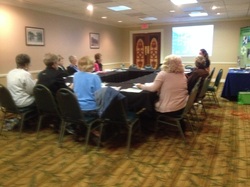
She started off by explaining the concept of saltwater fish measurement. and how different species of recreational fish harvesting are regulated by either total length (measured from the most forward point of the head with the mouth closed to the farthest tip of the tail with the tail squeezed) or fork length (measured from the tip of the jaw or snout with the mouth closed to the center of the fork of the tail.) A fish tossed into a cooler to be eaten for dinner one day in the future had best be measured correctly to eliminate the possibility of a big fine from and FWC officer that may be out and about boarding vessels.
Conserving Florida's Marine Fisheries
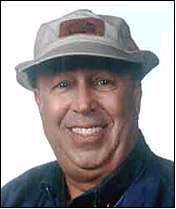
Among the various goodies that were spread out on the Education Resources table was a DVD called Conserving Florida's Marine Fisheries hosted by Mark Sosin. This video features three separate segments on how anglers can contribute to marine fisheries conservation in Florida. The DVD is free and can be ordered from the FWC website. To order a copy, click here. It is worth the time to watch.
Florida Saltwater Fishing Regulations
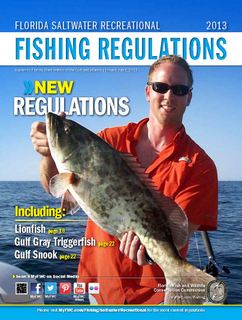
Jennifer moved on to the Florida Saltwater Fishing Regulations booklet which, again, can be accessed on the FWC website by clicking here. She began this segment by explaining how to get your picture on the cover of the next issue. It's called the Ethical Angler Photo Recognition Program where you send in your photo holding a fish the ethical angler way along with a signed photo release form (also found on the Ethical Angler link above) and your bright, smiling face may appear on the next cover of the regulations booklet. We're all anxiously waiting to see Jennifer, herself, on that cover!
She went into great detail when explaining the importance of recognizing each species of fish in order to comply with the harvesting laws. "I didn't know" is not a valid argument to an FWC officer when (s)he sees an illegal fish in your cooler. Jennifer made perfectly clear the reasons why each regulated species has size limits, allowing smaller fish to reach maturity and allowing larger fish to breed. We also learned why season closures are important to the survival of some species of fish and why bag limits are set on other species.
She also showed us a Power Point slide that displayed a map which illustrated the demarcation line between Federal waters and Florida State waters, State waters - being 3 miles off shore on the East side of Florida (the Atlantic) and 9 miles from shore on the West side (the Gulf of Mexico) and how the regulations are different for some species depending on where you are fishing.
Finally, on the topic of regulations, she pointed out the various Florida Management Zones and how each zone has what the sport calls a Grand Slam. This is officially called the Florida Saltwater Grand Slam Program
which gives anglers recognition for landing three different (very specific) species of fish in one day. These species will be different depending on the management zone you're fishing in. However, due to some confusion among anglers, this program is currently being reviewed and changes may be coming soon.
She went into great detail when explaining the importance of recognizing each species of fish in order to comply with the harvesting laws. "I didn't know" is not a valid argument to an FWC officer when (s)he sees an illegal fish in your cooler. Jennifer made perfectly clear the reasons why each regulated species has size limits, allowing smaller fish to reach maturity and allowing larger fish to breed. We also learned why season closures are important to the survival of some species of fish and why bag limits are set on other species.
She also showed us a Power Point slide that displayed a map which illustrated the demarcation line between Federal waters and Florida State waters, State waters - being 3 miles off shore on the East side of Florida (the Atlantic) and 9 miles from shore on the West side (the Gulf of Mexico) and how the regulations are different for some species depending on where you are fishing.
Finally, on the topic of regulations, she pointed out the various Florida Management Zones and how each zone has what the sport calls a Grand Slam. This is officially called the Florida Saltwater Grand Slam Program
which gives anglers recognition for landing three different (very specific) species of fish in one day. These species will be different depending on the management zone you're fishing in. However, due to some confusion among anglers, this program is currently being reviewed and changes may be coming soon.
Introduction to Marine Fisheries Management
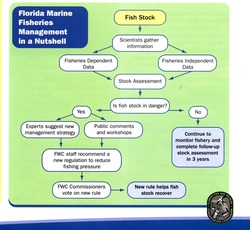
We took a short break and socialized for a few moments while Jennifer reviewed the collection of slides for her next topic: Marine Fisheries Management. In order to make sure each and every angler from pre-schooler to octogenarians have a fair chance to compete with the angler who's on the water more often than not, rules have been put into place to ensure that there are enough fish for everyone to catch (and either release or harvest).
She started at the beginning and explained how biologists first get involved. They conducting research on each regulated species. We learned about the different strategies they use to collect fish, and how the general public, that's me and you, can get involved and volunteer to help with some of the research teams. The information collected includes size, number and location of fish caught, as well as the number of fish that were released or harvested. Based on this collective information, the FWC Management Team makes suggestions regarding the minimum and maximum size limits, slot limits, bag limits and season closures to the FWC Commissioners who then vote on the suggested regulation changes. To read the entire PDF version of this pamphlet, click here.
She started at the beginning and explained how biologists first get involved. They conducting research on each regulated species. We learned about the different strategies they use to collect fish, and how the general public, that's me and you, can get involved and volunteer to help with some of the research teams. The information collected includes size, number and location of fish caught, as well as the number of fish that were released or harvested. Based on this collective information, the FWC Management Team makes suggestions regarding the minimum and maximum size limits, slot limits, bag limits and season closures to the FWC Commissioners who then vote on the suggested regulation changes. To read the entire PDF version of this pamphlet, click here.
Fishing Lines Magazine
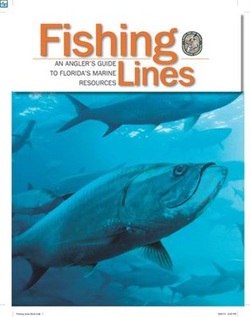
Jennifer wrapped up her lesson by passing this magazine out to everyone. Some of the women were already familiar with this book, while others were not. She guided us through the magazine one page at a time, stopping at certain pages to point out interesting factoids that might otherwise be overlooked. Page 21, for example, Where to Fish, was the most popular page in the book, for obvious reasons. This is the #1 question all visitors to Florida ask. 90% of tourists visiting our state come with plans to go fishing. She introduced the Sports Fish Restoration Program and explained how they collects funds (a small tax on most boating and fishing related products that we buy) and how that money is used to maintain and improve the sport of boating and angling in general. She also reemphasized what the term 'Ethical Angling' means, spending time teaching us the proper way to dispose of old monofilament line and how that line is recycled into various products used to make artificial reefs. For access to this publication, click here.
Slide Shows
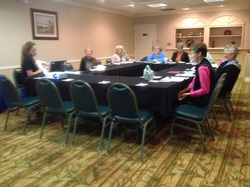
After Jennifer finished her presentation we spent the next 20 minutes watching a slide show of photos that had been taken at the Hidden Coast Paddle Festival during the first week of October. November's meeting didn't allow enough time for it, unfortunately, so we decided to plug it into December's meeting before the year was over. The event was just too much fun to not relive one last time with a new audience.
Not only did we have time to laugh and joke about some great pictures from that event, we also talked Jennifer, the newlywed, into bringing some pictures of her own - wedding pictures! What a treat it was listening to her describe the ceremony, introduce us to her family, her new husband, and many of the members of the wedding party. It was a beautiful beach wedding with incredible sunset photos. Simply beautiful people and scenery. Congratulations to David & Jennifer! We ladies wish you both nothing but the best for your future together!
Not only did we have time to laugh and joke about some great pictures from that event, we also talked Jennifer, the newlywed, into bringing some pictures of her own - wedding pictures! What a treat it was listening to her describe the ceremony, introduce us to her family, her new husband, and many of the members of the wedding party. It was a beautiful beach wedding with incredible sunset photos. Simply beautiful people and scenery. Congratulations to David & Jennifer! We ladies wish you both nothing but the best for your future together!
Upcoming....
Well, folks - It has been quite an interesting year. We formed this club back in March of 2013 and have been lucky enough to have the support of quite a number of individuals, businesses, and organizations that have encouraged us through the year. We've had our ups and downs and have made a few mistakes along the way, but we've learned what works and what doesn't and most importantly, we've made some great friends!
That being said - 2014 will run even better than this past year as we've learned so much along the way. So many opportunities will be planned out well in advance and guest speakers will be lined up in advance as well.
Until then, we wish each and everyone out there a very Merry Christmas and a wonderful New Year -
Thank you all for your kindness & support this past year.
Sincerely,
Nature Coast Lady Anglers
That being said - 2014 will run even better than this past year as we've learned so much along the way. So many opportunities will be planned out well in advance and guest speakers will be lined up in advance as well.
Until then, we wish each and everyone out there a very Merry Christmas and a wonderful New Year -
Thank you all for your kindness & support this past year.
Sincerely,
Nature Coast Lady Anglers
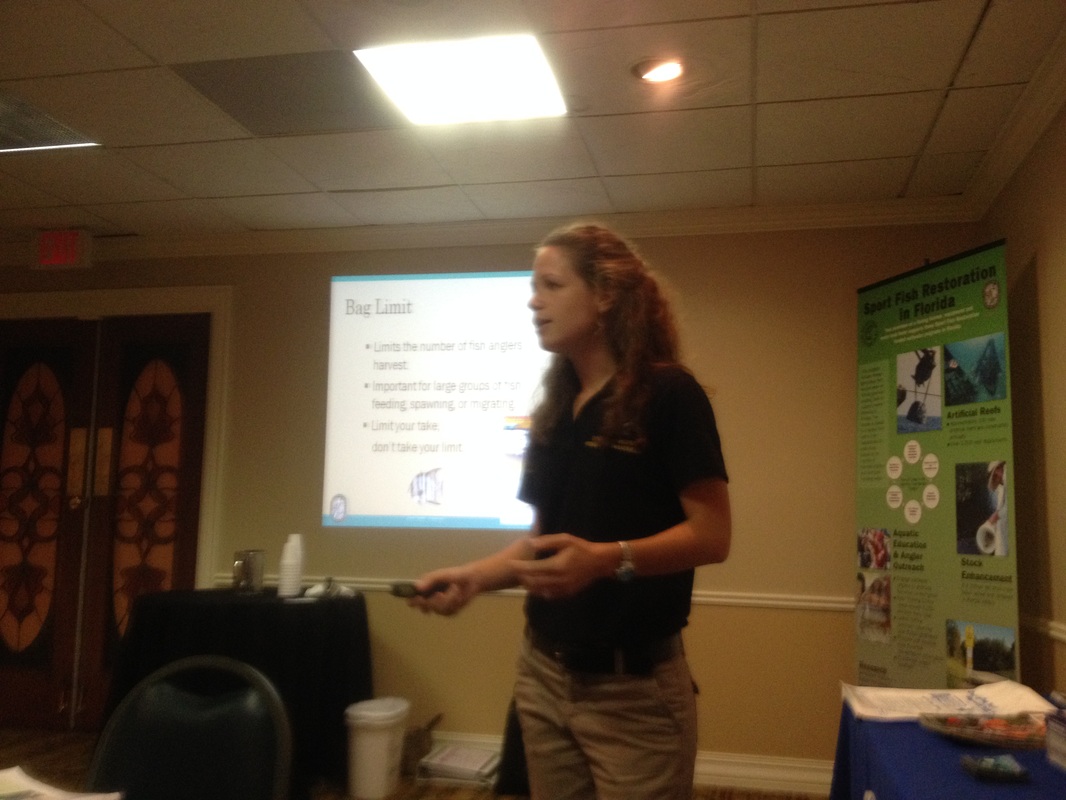
 RSS Feed
RSS Feed